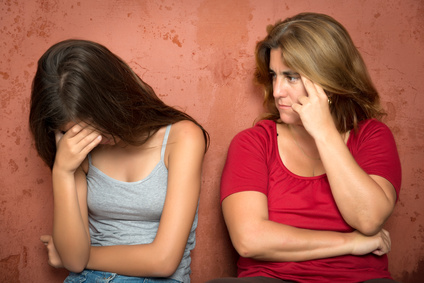I have seen many teenagers who have struggled with depression over the years. It is a very difficult condition for all of those involved. I often hear parents say that they had no idea their teen was depressed, even in situations when suicide has been attempted. As a parent, you may be wondering what you can do to help the situation. Here are some ideas I have learned over the years:
First of all, don’t blame yourself. Even if you have had depression or it runs rampant in your family, don’t feel guilty for “bad genes.” No one is at fault and no one is perfectly healthy. If depression runs in your family know that it is okay, you can accept it, and start to implement some solutions.
Secondly, don’t blame your teen. Depression can manifest in bad behavior at times. What you experiences is often the intense irritability getting expressed in negative ways. Don’t fight your teen, instead, join with your teen, so that together you can fight the depression.
3) Get help. You can help reduce the stigma of mental illness by bringing your teen to see a psychologist and a psychiatrist. Psychotherapy and medication are very helpful in treating depression. Be open to help available. Try to think about it this way: You would not tell someone with vision problems just to try harder to see better, you would get them glasses.
4) Don’t treat depression like it’s a character or moral flaw. Show compassion. Understand it is irrational, that is the nature of it. Don’t overreact and treat your teen like a fragile victim. Communicate that you understand they are having a hard time and with support, help, and their own strength they can feel better.
5) Don’t do things for them. Encourage them to do things on their own. Don’t yell at them to go to school, when they are too depressed to get out of bed. Do remind them that they can choose to go and will probably feel better if they do.
6) Don’t get mad at them for hanging out with friends. Understand that it is developmentally appropriate for your teen to separate from the family and spend more time with their peers. Do support positive peer relationships. Keep in mind that it’s a good sign if they can get the energy up to socialize.
7) Be a role model for healthy emotion regulation, assertive and supportive communication, good boundaries, and healthy relationships.
8) If your teen is at risk for self injury or suicide, take it seriously and safety proof your home. Don’t make them feel ashamed. Let them know you are removing dangerous objects for their safety and for the short term. If you are afraid for their safety, supervise them and bring them in for emergency help. Follow up with mental health professional recommendations. Don’t minimize the risks.
9) If you need help yourself, get it. In order to be the best parent you can be, you’ve got to be physically and mentally healthy as well.
10) If there is suicide in the family history or suicide in your community, make sure you talk about it and highlight that it is not a solution.
11) Instill hope that bad feelings and depression will pass, and you will be there to support your teen no matter what.
Remember that depression is treatable. Don’t be afraid to get help.
Please schedule a free 10 minute phone consultation by using my online scheduler below.







Follow me...